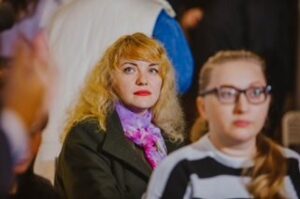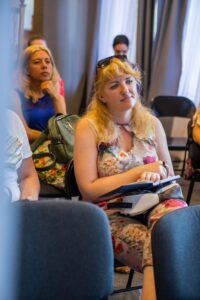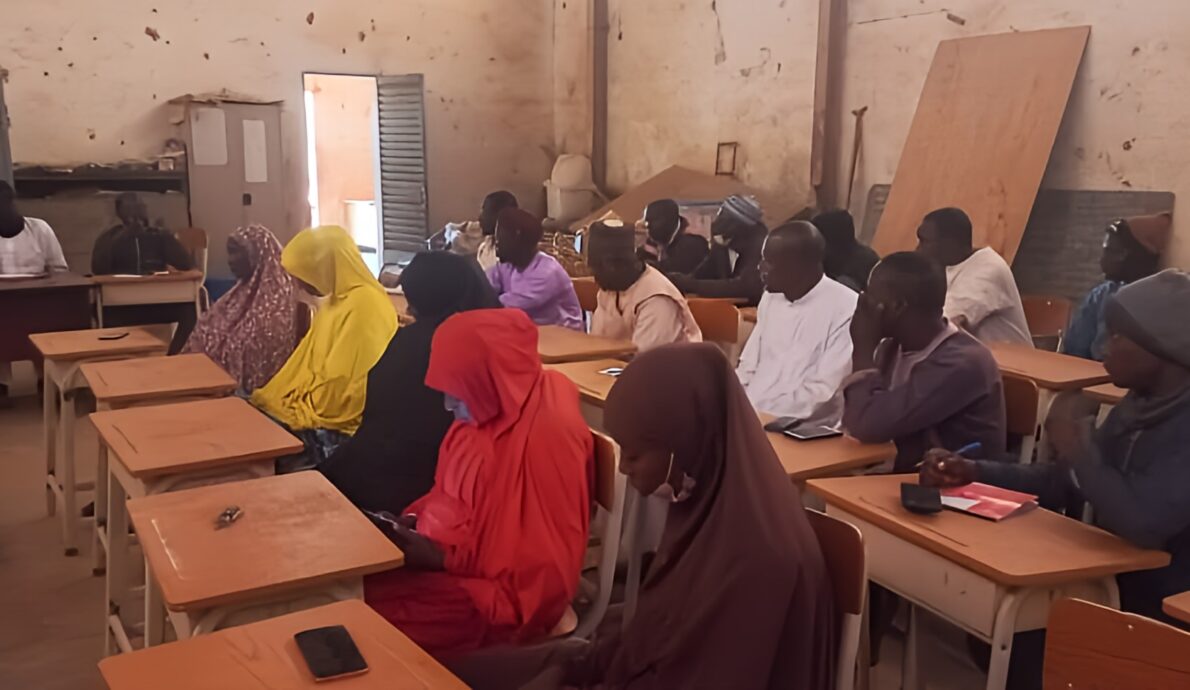Exhausted from the harrowing journey, Olena “Elena” Avakiants felt a wave of relief as she entered Romanian soil on February 25, 2022, having escaped the Russian attacks on the Ukrainian city of Donetsk.
Like many Ukrainian woman refugees, Avakiants did not stop to rest until her family was safe and cared for. She and her two sons left within hours of Russia’s invasion, leaving behind not only most of her belongings, but life as she knew it. Before the war, Avakiants had a successful career as a business development manager.
To help Ukrainian women refugees like Avakiants cope with the trauma of war and get back on their feet, Counterpart launched a program in the spring of 2022, to support Ukrainian women refugees learn self-care practices and how to share those with others. The trainings were divided into six sessions, with the main goal of developing skills to support one another through trauma in a crisis setting. Experienced facilitators taught participants how to be stronger listeners, monitor their own and loved ones’ trauma triggers, and build boundaries when needed. Participants learned everyday practices to support their long-term emotional safety, healing, and resilience. They were taught how to cope with loss by building a supportive community among each other. During a four-week period the participants were mentored so the participants of the program could support further their community.
Avakiants completed the first training session and helped facilitate the second session. Speaking of the long-term value of her involvement in the program, she tells others, “You get something to take with you for the rest of your life. … [The program] helped me stay focused, [and] change my life in the direction of balance.”
Avakiants was an early advocate of the program. Soon after settling into Bucharest, Avakiants was connected to someone working with Counterpart who encouraged her to apply for the Self-Care and Skill Building Program to support Ukrainian women refugees living in Romania. Avakiants spread the word to the Ukrainian community and within days all spots in the program were filled.
Reducing Stigma Around Mental Health
The program provided Avakiants a community of fellow Ukrainian refugee women who could support one another. The facilitators of the program were “well organized, communicated the aim and key points of each lesson, and gave tasks to practice together in our small groups,” and individually in life.
Avakiants explained that discussing mental health or self-care is uncommon in Ukraine, and in fact, people historically have distrust of mental health professionals. Through her experience in the program, she realized that “we need to change that mindset, especially with self-care.” She admitted that when the program first started, it was challenging to meet just to talk about themselves because they were concentrated on so many other things, just for survival. But soon she found that “self-care is good to redirect from problems” and that it will always be a work in progress but, “the more you talk about it, the more you do it.”
Plans for the Future
Avakiants learned how to de-stress, build boundaries, and be a better listener in order to help others. It inspired her to think big for the future of Ukranian women refugees everywhere. She said that her “main aim is to [help] them [become] independent.” She plans to use her unique connections built through her career and the program to support Ukrainian women as they work to rebuild their lives. Avakiants says, “We must put our mental health first and it doesn’t mean selfishness – it means we are also humans and tired and need to keep our mind safe in order to continue on.”
Managed and implemented by Counterpart International, the Self-Care and Skill Building Program is funded by ExxonMobil Corporation.
Read more about Counterpart’s Self-Care and Skill-Building Workshop here.






